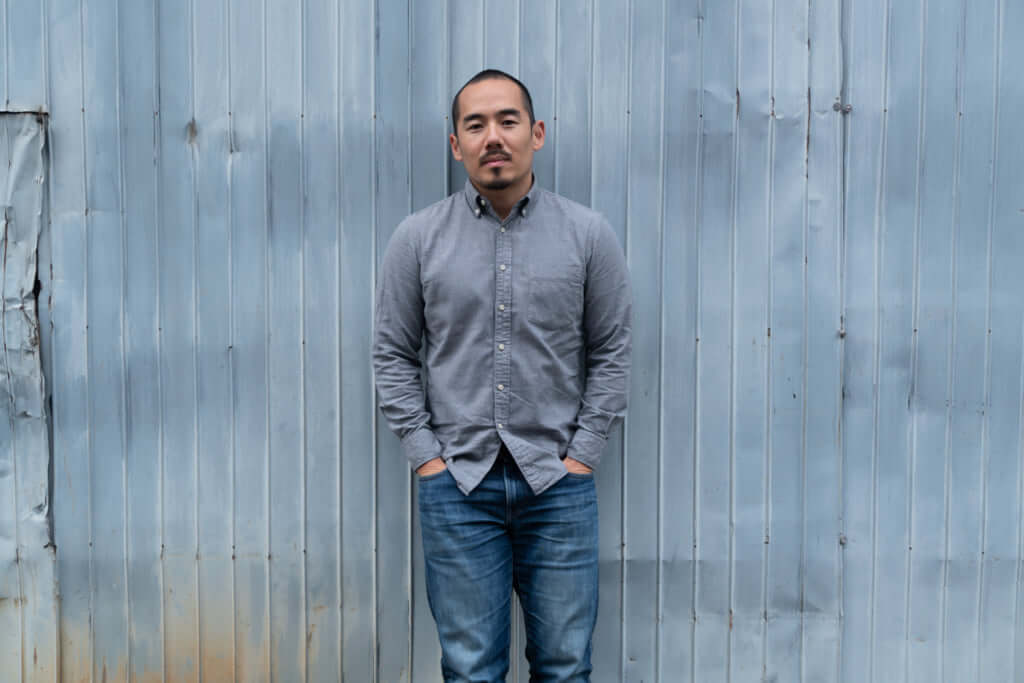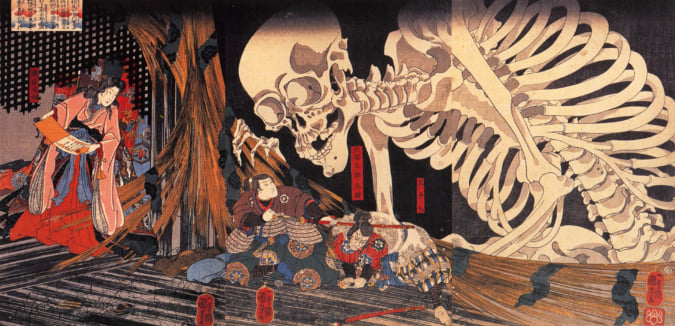Shusenjo, the Graduation Project that Became an International Sensation
In 2018, Miki Dezaki completed his graduation project at Sophia University, Tokyo, in the form of a documentary film entitled Shusenjo – The Main Battleground of the Comfort Women Issue. As the name suggests, the film examines the political arguments surrounding the comfort women issue in Japan, South Korea, and elsewhere. First shown at a screening on Sophia campus for an audience of professors and fellow students, the film has since been selected for the Busan International Film Festival, picked up for distribution by Tofoo Films, and screened in countless locations across Asia, North America, and Europe. We spoke to Mr. Dezaki about his journey to becoming a filmmaker, and what he has learned along the way.
Born in Tennessee, USA to Japanese immigrant parents, Dezaki – originally intending to become a doctor – studied Physiology in Minnesota. Realising the negative health impacts caused by the stress of a career in medicine, Dezaki went in search of his own form of stress relief, which he found in the practise of meditation. Subsequently, a desire to master meditation led him down a path towards becoming a monk. Following his mother’s wish that he first gain some form of work experience, he travelled to his parents’ homeland to teach English as part of the Japan Exchange and Teaching programme, before moving to Thailand to become a Buddhist monk. It was the lifestyle of a monk, the pursuit of enlightenment, and most notably meditation, that appealed to him. While the notion of North American doctor and Southeast Asian monk may seem worlds apart, Dezaki describes meditation as the ultimate preventative medicine. What is more, underlying both his decision to study medicine and that of becoming a monk was his wish to help others.

©Robert Kirsch
Dezaki might well have remained a monk had it not been for his father becoming terminally ill, which led him to return to the U.S. to act as a caregiver in the last days of his father’s life. The route to becoming a film director was paved with similar such crossroads, Dezaki muses. He almost enrolled in a Peace Studies programme in Finland, but instead chose the Graduate Programme in Global Studies at Sophia after receiving a scholarship. One of the nice things about Sophia, Dezaki says, is that their programme offers flexibility in the medium for the graduation project, allowing him to create a film while other programmes might not have been so lenient. If his father had not fallen ill, he might still be in Thailand. If he had gone to Finland, he might now be studying for a PhD. Things could be very different.
For Dezaki, the decision to make a documentary was based on several factors: he already had substantial experience in video editing from the time he spent as a YouTuber back in the U.S., making videos about social and political issues in Japan, so, for him, this medium was a relatively comfortable one. Moreover, he felt that there is a limit to the number of people who read academic papers, and he wanted as many people as possible listen to what he had to say.
Dezaki finds inspiration in anyone who tries to help those who are underprivileged, those who don’t have a voice. In the world of film, this translates into directors who tackle suppressed issues. Dezaki particularly respects the Japanese film director Mori Tatsuya, who offers audiences access to areas of society that are normally off-limits. Dezaki cites Mori’s explanation of how he was able to achieve insider access for his 1998 documentary into the Aum Shinrikyo cult, A: he said, ‘I just asked.’ The same went for Dezaki in the making of Shusenjo: he simply asked for interviews and people said yes.

When it came to actually producing a feature-length film, Dezaki underestimated just how difficult the process would be. Although he had help along the way, as a graduation project, it was largely a one-man venture. He realised all too clearly that making a film is not a single person’s project, but that of a team. Dezaki reflects on the stress and paranoia he felt at certain times, considering all the things that could potentially go wrong before completion. Yet everything seemed to fall into place at the right time: getting the interviews he wanted; being selected for Busan International Film Festival; meeting a director who introduced him to his current distributor…In a way, he says, the film is blessed.
So what’s next? He has plans for another film focusing on social and political issues in Japan, but won’t go into details. For Dezaki, until he has at least half of his footage, he won’t feel like he has a film yet. Too many things might go wrong, forcing him to move on to something else. In this respect, he feels that his approach is very different to that of Western filmmakers. Whereas in the U.S. directors may first come up with their conclusion, and then work backwards to ‘fill in the blanks’, Dezaki prefers a more exploratory approach in which he can discover and challenge his own views, and reexamine existing arguments so that they can be presented in the fairest way possible.
The desire to help others that informed Dezaki’s filmmaking, as well as his past stint as a monk, has a lot to do with his own experience as an ethnically Japanese person growing up in the U.S. The discrimination Dezaki suffered, while he understands is less threatening than that faced by African-Americans, was nevertheless a very difficult experience for him. Dezaki says that it would have meant so much to him, when he was growing up, had someone acknowledged the discrimination Asian-Americans face, in some form of media or another. He says that ‘for somebody to acknowledge your suffering is liberating’. That’s what he wished someone could have done for him, and what he hopes to do for others with his film.
Reflecting on the work that went into Shusenjo, Dezaki speculates that it was perhaps his naivete, at the beginning, that allowed him to complete the film. Had he known how hard it would be, how easily the whole thing could have failed, he may not have even started. To that end, Dezaki believes that while it is important to remain sensible and smart about your work, there is some value in the idea of letting your passion carry you away. Admitting that he was very lucky to receive so much recognition, Dezaki feels his early success may be a double-edged sword, setting up a certain – perhaps unrealistic – expectation for future projects. He makes sure to constantly remind himself of how hard it has been to get to where he is now. What he would like to say to anyone setting out on their own project, anyone who also feels they have something to say, is don’t be afraid to fail. Because failure may even be a good thing…if you can fail and still manage to persevere, it would show that you really love what you do.

TRENDING
-
Gashadokuro, the Legend of the Starving Skeleton
This mythical creature, with a thirst for blood and revenge, has been a fearsome presence in Japanese popular culture for centuries.

-
The Tattoos that Marked the Criminals of the Edo Period
Traditional tattoos were strong signifiers; murderers had head tattoos, while theft might result in an arm tattoo.

-
The Tradition of the Black Eggs of Mount Hakone
In the volcanic valley of Owakudani, curious looking black eggs with beneficial properties are cooked in the sulphurous waters.

-
Recipe for Ichiraku Ramen from ‘Naruto’ by Danielle Baghernejad
Taken from the popular manga with the character of the same name who loves ramen, this dish is named after the hero's favourite restaurant.

-
Tatsuro Yamashita, King of City Pop
The visionary pop singer and producer, who endowed the Japanese tech-boom as a utopian escape for future generations.





